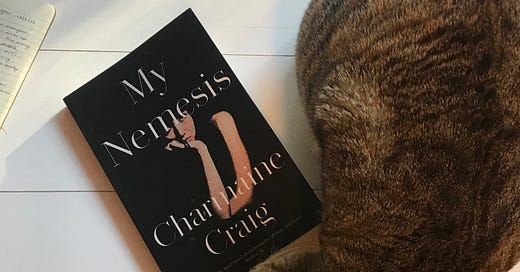This novel struck me as a project where the writer tried to write all the way around her subject without ever getting to the meat of the sandwich, so to speak. Our narrator is Tessa, a feminist memoirist seven years into her second marriage and newly enamoured of an American philosopher, Charlie, who has shown interest in her work. She and her husband Milton befriend Charlie and his wife, and the four of them become embroiled in an awkward coven of conflicting values and competing desires.
Charmaine Craig’s structure has an unusual rhythm – there is the sense that the novel is always almost just about to get started, at the cusp of a revelation, but never quite delivers anything truly satisfying about the core of the characters or their actions. Perhaps we never truly understand why we feel or do anything, but for me, the balance between foreshadowing and illustrating the events that cast the shadows were not conceived in harmony.
The central tension, or so we are instructed, is between Tessa and Charlie’s subservient wife Wah. Tessa feels threatened by Wah’s spirit of martyrdom and her close relationship with her adopted daughter, which she perceives as a betrayal of a woman’s duty to be singular before she is anything else. Tessa’s moralistic arguments throughout the novel, peppered with references to Camus ad infinitum, tell us more about her wish to be seen in distinction to a traditional construction of femininity, than about who she truly is inside. As her daughter Nora observes “All you care about is your side. And you don’t even know the reality of who you are.” There is an authorial self-awareness of Tessa’s limitations and yet her narrow bitterness pervades much of the novel without the softness of hindsight, or the relief of dark humour. The two-dimensional stand offs between Tessa and Wah do not feel as devastating as they might have been with just a fraction more context or humanity.
My Nemesis was a thin work that leaned too heavily on the promise of complexity without the character depth to back up the ideological arguments explored about power dynamics, privilege, motherhood and self-sacrifice. The four central characters were words on a page reading a script, not people I might meet, and that sense of artifice ended up defining my disappointment.




